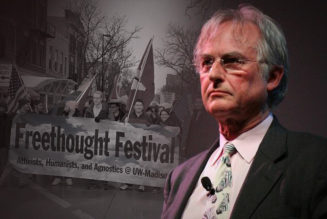
Irreconcilable Differences?
Pleas for the repair of America’s political life abound.
Critics of President Trump have called for the recovery of truth. Trump’s constant lies, they charge, created a post-truth environment. Media outlets such as the New York Times and CNN made it their mission to report Trump’s lies; the Washington Post kept a running tally of them. Calls for “evidence-based” policies have become common, even appearing on thousands of lawn signs, alleging that Trump trampled on science in regard to climate change and COVID-19. President Biden was bringing “truth back to American government,” announced his press secretary, Jen Psaki, at her first press conference.
Uncovering and restoring truth is a prime quest of societies rebuilding from war and dictatorship. Doubtless Trump has lied ceaselessly, reaching back to his aspersions toward President Barack Obama’s birth certificate, continuing in his inflation of the size of his inauguration crowd, running through the constant prevarications of his presidency, and reaching a peak in his reckless rejection of the 2020 election results.
The rampant purveying of falsehoods in America, though, did not begin with Trump. While politics has always known lies, today’s new technologies and modes of communication—mass mailings, advocacy over the internet, niche media markets—create new incentives for putting forth half-truths, distortions, unsupported claims, and outright falsehoods. Yet beyond these pressures and the steady stream of sullied utterances that they elicit, particular grand falsehoods have come to pervade public life in recent decades. For instance, news outlets, including today’s decriers of Trump, as well as college professors, school teachers, public officials, movie and television-show producers, and ultimately, the United States Supreme Court—and parallel institutions in other democracies—together have asserted thousands of times that two men or two women can be married. These assertions may not be strictly lies, for their utterers hold them to be true and thus intend no deceit. Why they are falsehoods nonetheless requires more argument than is possible here—the very plight that points to our predicament. Virtually yesterday on the timeline of history, thousands of influential voices began proclaiming something to be true that negated what every civilization—and every Christian church—had regarded as self-evidently and foundationally true up until that day. Does not such an astonishing sweep and abruptness lay waste to a society’s ecology of truth? In like manner, even today’s most ardent champions of evidence ignore the vast consensus of scientists—96 percent of a sample of 5,577 biologists, according to one study—that life begins at conception, a denial that has undergirded the killing of over 60 million unborn children. Repairing the ecology of truth is essential for restoring right relationship in the political order, and will require far more than Trump’s exit.
Another proposal for repair is punitive justice—meting out what is due. Following the 2020 election, and even more so after the assault on the Capitol, calls for retribution well exceeded impeaching and trying Trump in Congress. They included lustration measures resembling those of Eastern Europe after the fall of communism and Iraq after the overthrow of Saddam Hussein, which debarred complicit officials from holding public and private leadership positions. MSNBC’s Joy Reid called for the “de-Ba’athification” of the Republican Party; an ABC News story recommended the “cleansing” of Trump’s movement and then edited out this word, associated with killing minorities, when controversy arose; a Forbes writer called on companies not to hire Trump officials; faculty at Harvard demanded the revocation of their degrees.
Just punishment has its place, and Trump may well merit sanction for his incitement of the assault on the Capitol. Collective punishment, treating members of the opposite party as outlaws, not opponents, though, will not restore our politics. Payment will beget payback in the form of punitive pursuits every time the presidency changes party hands, and our divisions will combust. Where does it end?
In the view of far more Americans, fixing politics simply means ending injustices through securing the rights of one or another set of persons: African Americans and other minorities, unborn persons, immigrants, transgender persons, refugees, women, Christians who want to live their faith freely, and human beings insofar as they benefit from a clean and stable natural environment. Rights, what is due to everyone, are integral to justice. Rights are overused, invoked for any and every cause, and rights are often misused, severed from genuine human goods. But when they are genuine, rights protect human dignity and are thus essential components of right relationship in the political order and merit being incorporated into reconciliation.
Protecting rights alone, though, will not end our polarization. They are the very bones of contention in our politics. Further, a justice limited to rights stunts virtues and practices that elicit goods that rights alone cannot deliver—strengthening social ties, healing wounds wrought by injustice, making peace among enemies, providing care, alleviating vulnerability, and advancing flourishing and friendship in many other ways. Justice as due is unduly truncated. A wider, fuller justice, one that incorporates what goes beyond due, would make political proposals and platforms, including their commitments to rights, appealing to a far wider consensus of citizens. In this way, the Bible’s justice of right relationship, its reconciliation, can help to heal the land.
Consider abortion, the most polarizing issue in American public life. The late Richard John Neuhaus’s line from his great pro-life speech of 2008, that every unborn child be “protected in law and welcomed in life,” expresses what is both due and beyond due. The full legal protection of the human right to life is due to every unborn person, who possesses dignity on account of being made in the image and likeness of God. That is non-negotiable.
This protection alone, though, will not eliminate the conditions that lead to abortion, heal the widespread wounds that abortion has inflicted, or even end the procurement of abortion. The chemicals that bring about medication abortions, now 41 percent of all abortions, likely will remain easy to obtain. Even should Roe v. Wade be overturned and laws prohibiting abortion be passed in many states, counterefforts will be made to codify abortion rights in other states and even on the national level, as Biden has supported.
Welcoming every unborn person into life will require a justice that does more than restore rights. It will require care and mercy of the sort that over two thousand women’s care centres around the country extend to pregnant women, empowering them to overcome fear and choose life with extraordinary rates of success. Given the typical poverty of women who procure abortion—some three-quarters are low income and more than eight in ten are unmarried—the virtues of care and mercy also call for law and policies that will provide support in paying the costs of birth, health care after birth, child care, pregnancy leave, reforms that make adoption more affordable and attractive, and more aggressive efforts to collect child support from birth fathers.
A restoration of reverence for life and care for the vulnerable is needed so that pregnant women will be cared for, rather than coerced through, the network of relationships that surrounds their decision for life, one that includes the birth father, family members, her doctor, and others. Making the case for life requires a love of neighbour, even of enemies, that exhorts and persuades and shuns inflammatory words and images. Hope, healing, and forgiveness, the three terms that appear on the home page of Project Rachel, a ministry for post-abortive women, are needed to salve the wounds of abortion in a country where about one-third of women have had abortions. Forgiveness contrasts most sharply with the justice of rendering due. Jesus teaches his followers to forgive others their debts on account of God having forgiven their debts. Jesus’s forgiveness does not merely cancel debt but is part and parcel of the action through which he restores us.
All of these strands of restoring right relationship, of reconciliation, are variously practiced or supported by advocates for life in the United States today. Integrated, amplified, and tethered to the right to life, they compose a justice that stands the best chance of widening the consensus on ending abortion.
What does the justice of right relationship bring to race, another issue that involves the denial of justice to an entire class of persons and that divides America more than at any time since the marches and riots of the 1960s?
What is due, again, is indispensable. Racism is in essence a denial of the respect due to a person’s dignity. Due is at the core of claims about structural, or systemic, racism, holding that African Americans are treated unfairly in buying or selling a house, opening a bank account, gaining employment, and being pulled over by police officers, and that they are underrepresented economically and professionally and overrepresented in crime, incarceration, and out-of-wedlock births. These disparities are not explainable apart from racism, sociologists such as Michael Emerson, George Yancey, and Brandon Vaidyanathan have concluded upon assessing a wide range of empirical studies. Due is what many saw fulfilled in the trial and conviction of Derek Chauvin, the police officer who killed George Floyd on May 25, 2020.
The United States has seen progress in rendering due, most prominently through the Civil Rights Act of 1965. Yet, even if all remaining racism were to be eliminated, fairness and equality restored, and due delivered, reconciliation would not be achieved. Today’s disparities are not the result of a misfortune such as an earthquake, or of impersonal historical forces, but rather of gargantuan injustices—massive slavery, colossal Jim Crow, and racist laws and policies on national, state, and local levels in the middle portion of the twentieth century. These injustices have left behind not only racial disparities but also a moral legacy—what can be called the standing victory of injustice. Unless and until a wrong is authoritatively repudiated, it persists as unfinished business, a rupture in right relationship.
Join Our Telegram Group : Salvation & Prosperity









